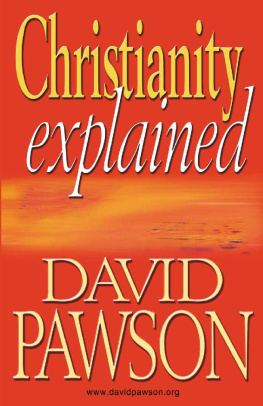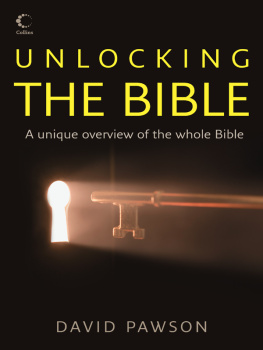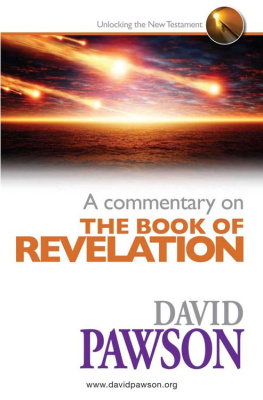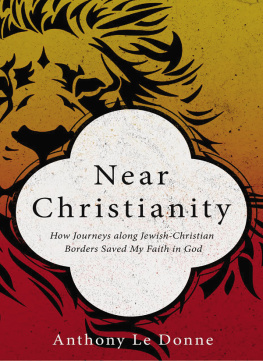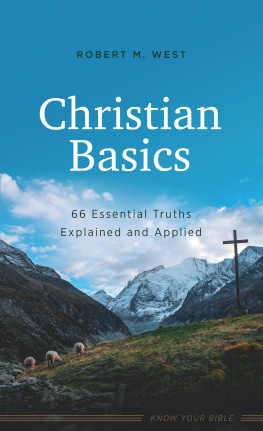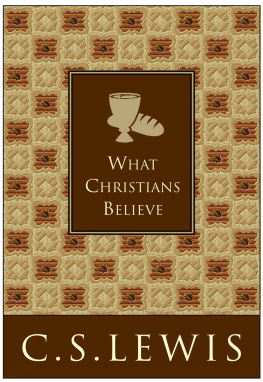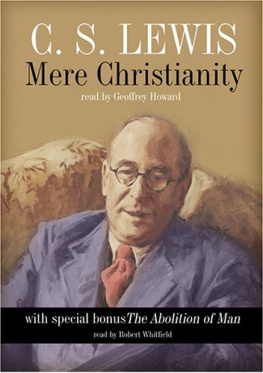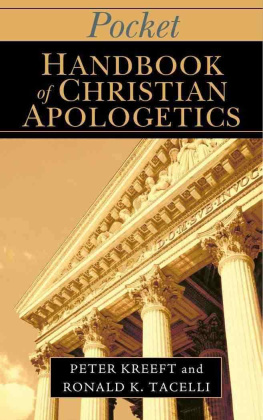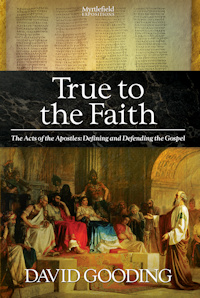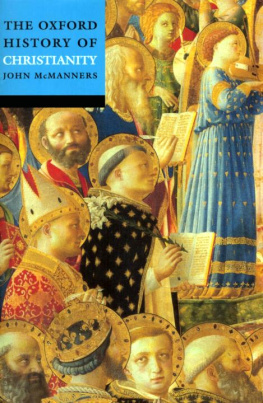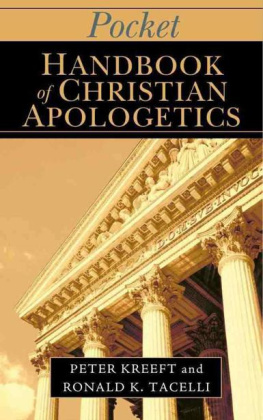David Pawson - Christianity Explained
Here you can read online David Pawson - Christianity Explained full text of the book (entire story) in english for free. Download pdf and epub, get meaning, cover and reviews about this ebook. year: 2014, publisher: Anchor Recordings Ltd, genre: Religion. Description of the work, (preface) as well as reviews are available. Best literature library LitArk.com created for fans of good reading and offers a wide selection of genres:
Romance novel
Science fiction
Adventure
Detective
Science
History
Home and family
Prose
Art
Politics
Computer
Non-fiction
Religion
Business
Children
Humor
Choose a favorite category and find really read worthwhile books. Enjoy immersion in the world of imagination, feel the emotions of the characters or learn something new for yourself, make an fascinating discovery.
- Book:Christianity Explained
- Author:
- Publisher:Anchor Recordings Ltd
- Genre:
- Year:2014
- Rating:5 / 5
- Favourites:Add to favourites
- Your mark:
- 100
- 1
- 2
- 3
- 4
- 5
Christianity Explained: summary, description and annotation
We offer to read an annotation, description, summary or preface (depends on what the author of the book "Christianity Explained" wrote himself). If you haven't found the necessary information about the book — write in the comments, we will try to find it.
Christianity Explained — read online for free the complete book (whole text) full work
Below is the text of the book, divided by pages. System saving the place of the last page read, allows you to conveniently read the book "Christianity Explained" online for free, without having to search again every time where you left off. Put a bookmark, and you can go to the page where you finished reading at any time.
Font size:
Interval:
Bookmark:
EXPLAINED
Copyright David Pawson, 2006
This is a revised and updated edition of a work previously published as Truth to Tell
by Hodder and Stoughton Ltd under ISBN 0 340 21291 8. First impression 1977.
And by Bethel Books under ISBN 0 953 31420 0 (1998, sixth impression)
The right of David Pawson to be identified as author of this work
has been asserted by him in accordance with the
Copyright, Design and Patents Act 1988
All rights reserved.
No part of this publication may be reproduced or
transmitted in any form or by any means, electronic
or mechanical, including photocopy, recording or any
information storage and retrieval system, without
permission from the publisher
Published by Anchor Recordings Ltd
72 The Street, Kennington, Ashford TN24 9HSAll rights reserved.
Cover design by Roger Judd
eBook production by Oxford eBooks Ltd.
www.oxford-ebooks.com
Some years ago, when I was looking in hurt for a real God not just somebody I sang hymns to two books quickly brought Him into focus. Neither of them was the Bible: the Spirits life had later to kindle a hunger in me for that.
One of the books was this one. What it did, I now believe, was to clear from my confused view all the dense undergrowth we can accumulate through childhood and into manhood. I call this undergrowth religion.
It increasingly encumbers many of us who are brought up to go to church on Sunday. We learn the right prayers, and when to kneel, and we pick up some of the jargon; but we still do not know whether God is real. And we do not know how to make contact with him. We sit half listening to head-fuls of sermons about all kinds of mystical propositions. So many preachers, intoxicated by theology and yet themselves apparently unsure, fail to tackle the simple, basic truths.
Does God exist? How may we know? Is He still alive today? Does going to church on Sunday make me a Christian?
So there I was, in a bit of a mess, needing help, and I found this book one day on a bookshelf. David Pawson took me with such clarity through all the undergrowth that I soon began to see the light shining ahead, and I could not wait to break through into the warmth and glow. Then I hit the last boulder in my path his chapter on the full conversion God has prepared for us. I listed what he claimed were the biblical tests we all had to pass, and it dawned on me that I had not passed them all.
How could I get to meet this man, and ask him questions on his proposition? I thought I might write to him via the publisher. Then a good friend, a former professional footballer called Harry Hughes, invited me to talk about the Olympics (I think it was) to his churchs mens mid-week meeting. The church was in Guildford: that was all I knew. I went along with Harry that night, and he introduced me to the pastor. He was David Pawson.
We spent important hours together the next day as Enid, his wife, kept the coffee cups full, and for a few years following I would drive miles on Sunday nights to hear his Bible teaching. It was a revelation to me, as it has been to countless others.
The Lord bound us together. We meet now infrequently, but when we do the love flows and we delight in sharing our understandings of what God is doing and saying.
To point others, perhaps, to the foundational truths he expounds is an honour. These few words, then, are my little thank you to David. Much more, I thank God for the journey He and others helped me begin thirty odd years ago. I would not have missed it for anything.
GERALD WILIAMS
Sports Commentator
April 1988
I was speaking at a college when a girl in her late teens interrupted to complain that I kept on using a word she could not understand. I assumed she was referring to some choice piece of theological jargon, but in fact she was referring to the word God. What is that? she asked. What does it mean?
Another student told me that my use of the word God clearly had a very different meaning from his. He explained that for him God meant religious feelings his own, and other peoples. I asked him whether his God would cease to exist if there were no people left to have these religious feelings, and he agreed that he would.
With all the different ideas about God which there are in the world, it may seem impossible to say anything certain or reliable about him. After all, no one has ever seen God a fact that is inclined to make some people abandon the search for him before they have really begun it.
It is necessary to start with something tangible and capable of examination, and one obvious place to start is with the universe itself. It is there, and its very existence poses a fundamental question: How did it get there? It seems strange that many people who say they want to find out about God ignore that very basic question.
There are four different answers on offer today. The first I find mind-boggling, but many people believe it so it cannot be ignored. They say the answer to the question How did the universe get there? is that it did not. It is not really there at all. The whole thing is a figment of the mind, an illusion. Matter simply does not exist.
The second answer, increasingly popular in recent years, is to say that the universe has always been there. It has changed, developed and evolved, but there was never a time when matter did not exist. This idea is at least as old as ancient Greece, and it has the merit of being a rational alternative to belief in creation, but modern research into the universe and its origins makes it an increasingly difficult position to defend. More and more scientists believe that the universe is not infinite either in space or time that it had a beginning, and will have an end.
The third answer could be summed up in one word: chance. At some remote point in history nothing became something: by chance the ingredients occurred for a spontaneous creation. Of course, this view presupposes the existence of the basic ingredients of matter, which seems to leave us where we were! Frankly, I think it takes more faith to be an atheist than to believe in God.
The fourth answer is the religious one, that this universe was created, and that the very fact of its existence is proof that there must be a power and an intelligence greater than the universe, which willed its existence. That power and that intelligence is the being to whom we give the title God.
Supposing you were exploring a desert region with four friends, and you stumbled across a fabulous palace. Each of your friends offered an explanation for its existence. Its only a mirage, says the first even after you have banged his head against its solid walls.
Its always been there, suggests the second. Its as old as the earth itself.
It put itself there, offers the third, by a remarkable process of chance.
It was built by a famous architect, says the fourth. Ive met him myself.
Which would you believe?
The Bible says that through the things he has made Gods power and deity can be clearly seen (Romans 1:12). In other words, their existence is the proof of his existence. So a man who can look at the universe around him and say that there is no God has denied his own reason and talked himself out of the truth. Without opening the Bible at all, man can see some content to this word God. Behind the things we can see there must be a power greater than those things. And people have always believed that that power is God.
It is true that at times this has expressed itself as belief in many gods, even in the heavenly bodies. But if we go back through human history we find that in its beginnings mans religion was not a belief in many gods, but in one God who made everything. Only later did this degenerate into a belief in the plurality of gods, including rivers, mountains, the sun and the moon.
Font size:
Interval:
Bookmark:
Similar books «Christianity Explained»
Look at similar books to Christianity Explained. We have selected literature similar in name and meaning in the hope of providing readers with more options to find new, interesting, not yet read works.
Discussion, reviews of the book Christianity Explained and just readers' own opinions. Leave your comments, write what you think about the work, its meaning or the main characters. Specify what exactly you liked and what you didn't like, and why you think so.

